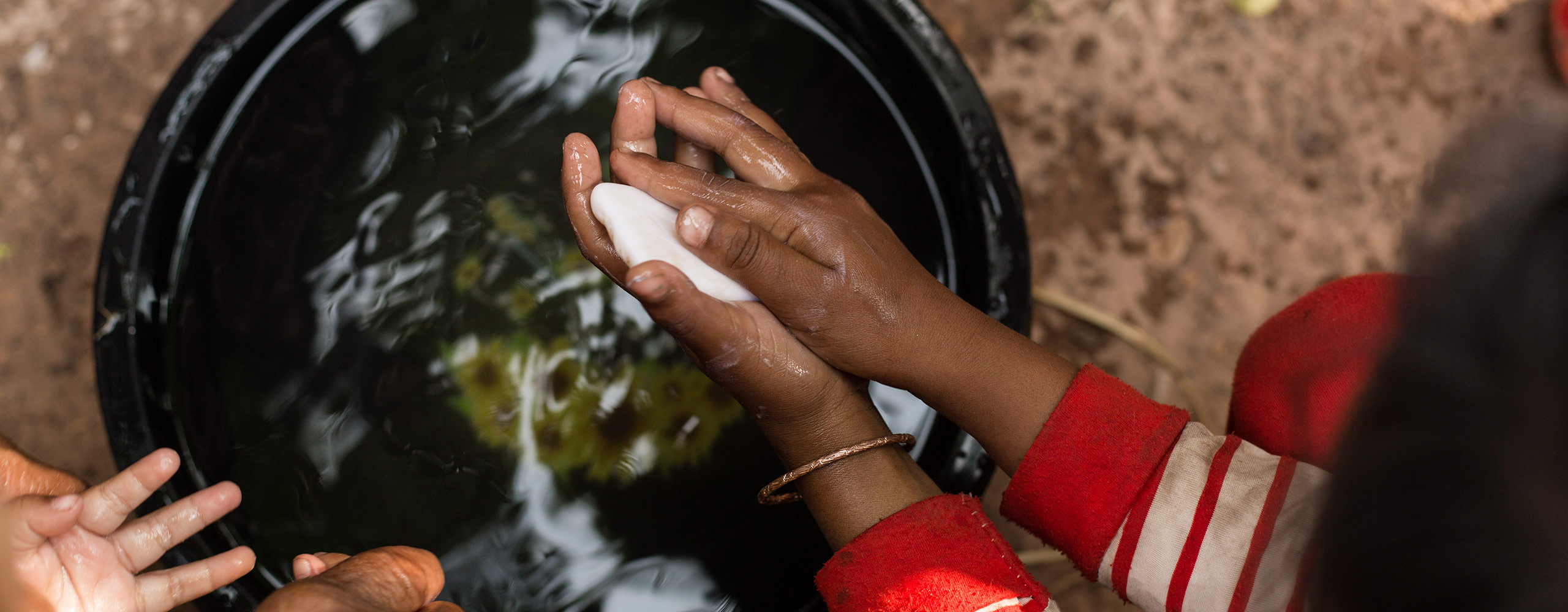SITUATION
As of April 22, the World Health Organization reports over 2.4 million confirmed cases of COVID-19. More than 169,000 people have died. Countries worldwide are scrambling to protect their citizens and stop the spread of this pandemic.
Coronavirus –and the measures governments are taking to protect their citizens– are taking a toll on communities around the globe. The pandemic is exacerbating existing crises and food shortages. Schools are closed, and students are disconnected from learning. Migrants and refugees worldwide are in precarious situations, often unable to socially distance or maintain needed hygiene standards. Jobs are drying up as economies struggle to adapt.
Regretfully, we have now documented clusters of refugee families in the United States with confirmed cases of COVID-19, and are trying to assess ways to directly assist them. As the meat packing industry, one of the largest employers for newly arrived refugees and other immigrants, continues to confirm new infections at the higher rate, we have been hearing of more people being laid off. At the same time, instances of anti-immigrant and xenophobic behavior and actions have also been on the rise, and CWS staff is continually monitoring the situation and responding when necessary and possible. We anticipate the need to get more pronounced unless the pandemic slows down.
CWS RESPONSE
CWS and its local partners are responding to unique COVID-19 needs faced by the vulnerable populations we work with. In many cases, that means distributing accurate, accessible, language-appropriate information about coronavirus to marginalized communities. Teachers, counselors and outreach workers are calling program participants and their families to check in and provide services over the phone. In some countries, our teams are responding to requests for food assistance and hygiene supplies. Several programs are providing cash grants to families with urgent needs for food, medicine, housing, internet connectivity, and more. This includes some refugees globally, among them unaccompanied refugee children. We have provided grants to several local partners to improve their hygiene infrastructure, provide personal protective equipment to their staff, or carry out awareness campaigns. Our education programs are focusing on helping students continue their lessons when school has been canceled and they cannot access lessons via television or other inaccessible platforms. In Jakarta, Indonesia, where we host group homes for refugee women and unaccompanied children, we have set up temperature checks and handwashing stations for everyone entering the homes, with isolation areas for anyone exhibiting symptoms. In Bosnia, we continue to provide guardian services for unaccompanied minors and separated migrant children who are stuck without their families on the migration route due to closed borders.
Our offices across the United States are continuing to provide a continuum of services to newly-arrived refugees, migrant farm workers and asylum seekers. Many resettled refugees are losing their jobs, or have not yet had a chance to enter the labor market and largely do not qualify for government benefits. Those still employed are often forced to work without appropriate personal protective equipment and frequently have to carpool to get to the place of employment. The vast majority do not have social networks or savings to fall back on in this time of crisis. Most of our local offices serve as focal points in the community and offer food assistance to up to 150 people per week. At the present, the biggest need is cash for May rent, food and non-food items. Our staff colleagues still deliver services where and when appropriate in a safest way possible. This includes delivering food and medicine to refugee communities, and continuing to file legal documents for those with immediate deadlines, as Service Centers are still functioning. English as a Second Language, legal consultations for new clients and other services are continuing through video calls as staff and volunteers continue to stand for welcome.
CWS Hygiene Kits, Blankets and Emergency Cleanup Buckets have been deployed in Michigan, Texas, New York, Arkansas and Oregon to keep people healthy and safe in the face of COVID-19. More than 1,700 CWS Kits and 500 Blankets have been shipped to organizations on the ground in these states. However, as churches are not meeting in person and kit depots are closed, our supply of new kits has been greatly diminished. We need to replenish our supply of kits in order to be able to respond to future requests, particularly as spring storms and eventually hurricane season will be upon us.
BUDGET
Total to meet immediate needs in 2020: $1.75 million
- Rental + financial assistance for refugees and immigrants in 17 offices across the United States: $700,000
- Critical infrastructure support for refugee resettlement offices: $250,000
- Child care assistance for critical refugee cases: $50,000
- Adaptation and expansion of hunger- and poverty-fighting programs globally: $400,000
- Support for migrants and refugees globally: $200,000
- Direct humanitarian assistance through domestic programs: $50,000
- Replenishing and shipping CWS Kits: $100,000
Please note that this $1.75 million appeal is for 2020. We anticipate needing an additional $1 million to meet medium-term needs through June 2021, for a total of $2.75 million.
HOW TO HELP
Donations to the CWS Coronavirus Response Fund can be made at cwsglobal.org/coronavirus or sent to CWS (P.O. Box 968, Elkhart, IN 46515). When sending a check, please designate it 6302, Coronavirus Response Fund.
CWS is a member of the ACT Alliance, a global coalition of churches and agencies engaged in development, humanitarian assistance and advocacy.

